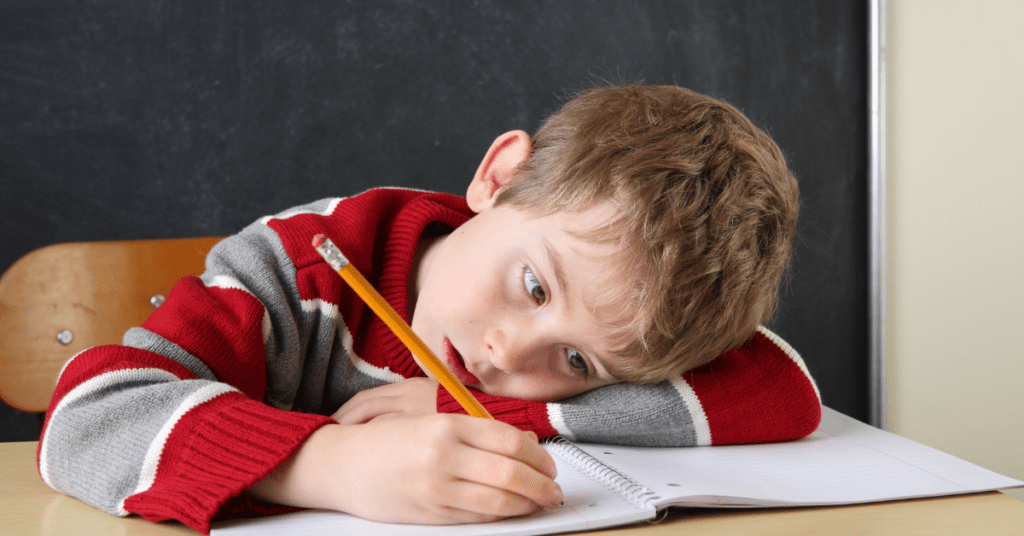Contents
What is ADHD?
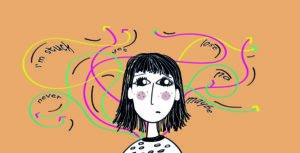
ADHD (Attention Deficit Hyperactive Disorder) is a condition that is now very common in children. It is generally found in young age kids and it can even last up to their adulthood. It makes children unable to concentrate on their work and other tasks as well. The other name of this disorder is ADD ( Attention Deficit Disorder). Children with ADHD cannot control themselves and become impulsive in nature, which they might regret later with time. The other challenge they can face is to control their anger. They can be overactive some days. These can further make them suffer at schools or anywhere.
Majorly there can be two types of behaviour that can be seen in children. These two different types of behaviour can be:
- Impulsive Behaviour: In this, the child behaves overactive and is unable to control his or her impulses.
- Inattentive Behaviour: In this, the child is not paying attention to his or her surroundings.
What are Types of ADHD?
To clearly understand what ADHD is, it is classified into three basic types. These types are
Predominantly Inattentive
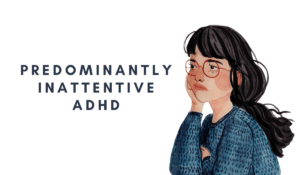
In this type of ADHD, Children find it very difficult to pay attention to things. Children face a lot of difficulties in following the instructions.
Symptoms of Predominantly Inattentive
- Daydreaming
- Gets bored very easily
- Avoid focussing on work
- Loses track of things
- Trouble in following instructions
- Forget things easily
- Unorganised
- Miss details on important things
Researchers suggest that people with this type of ADHD tend to ignore the diagnosis as they do not create any difficulties in the class or cause any damage. To help out children with this type of children other than the treatment methods, these are the things that you can definitely do:
- Make lists for daily work
- Help them in organising
- Help them to make a routine
- Give them clear instructions
- Give them rewards for doing anything good.
Predominantly Hyperactive-Impulsive
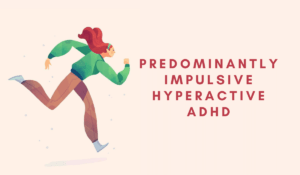
People who have this type of ADHD are hyperactive and very impulsive in their behaviour. They tend to interrupt people a lot when they are not able to wait for their turn.
Symptoms of Predominantly Hyperactive-Impulsive
- Restlessness
- Difficulty in standing still
- Constant talking
- Talk unnecessarily things
- Impatient
- Trouble in quiet activities
- Do things without thinking of consequences
- Fidgeting
Inattention is a very rare concern, as people with Predominantly hyperactive Impulsive ADHD find it difficult to focus on the tasks. Children who have this type of ADHD as a major disturbance in the class. They cause difficulty in learning for themselves as well as for others in the class.
Combined Hyperactive-Impulsive and Inattentive
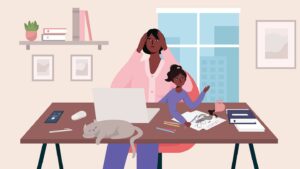
Among all the types of ADHD, this is the most common type that is found in people. In this people show the symptoms of both Hyperactive and Inattentive types. Normally, people can have the symptoms of both even if they are not having ADHD. But when you are suffering from ADHD, the symptoms are worse. Most of the children have this type and the most common type is Hyperactivity. The risk factors of this are the same as of Predominantly Hyperactive and Inattentive type.
What are Signs of ADHD in Children?
The personality of a child is very uncertain. It tends to change every single day of his or her life. It is very easy to observe the behavioural change in a child. You just need to keep a check on your child correctly. There are some of the signs that can tell that a child is having ADHD. Some of these are:
Trouble in Concentrating
This is one of the first symptoms that a child shows when he or she is having ADHD. They are not able to concentrate on their work or even if someone is speaking to them.
Misplacing Things
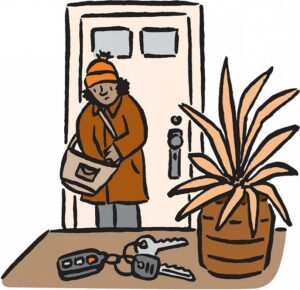
When a child keeps on forgetting things where he or she has kept them or starts losing them regularly, it can be a sign of ADHD. If this continues for a longer period of time, it is a point of concern for you.
Fidgeting
When the problem is severe, in those cases children develop a habit of fidgeting. The situation can be very complicated in some cases as the treatment can be harsh for both parent and the child.
Imagining
A child with ADHD starts daydreaming about some things which cannot happen. He or she starts living in a world that is full of his or her fantasies. They start daydreaming even when a lot of people are around them.
What are Signs of ADHD in Adults?
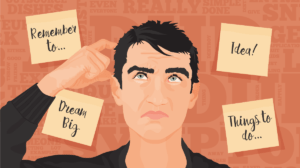
ADHD commonly starts in the childhood of a person but can last even in adulthood. However, it is very difficult to find out that person has ADHD. The reason can be the impact of the symptoms decreasing when the person is in their adulthood. There can be mild as well as severe symptoms in adults. Some of these symptoms are:
Poor Management Skills
A person struggles to manage his or her personal as well as professional lives. They cannot decide on what they should focus on. They are not able to manage their daily routine, work, relationships, etc.
Anger
A person with ADHD has a lot of anger issues. He or she can lose their temper even in very little things which can be ignored. They can be dealing with a lot of mood swings and impatience levels.
Trouble in Coping up with Stress
An adult with ADHD may find it difficult to manage the stress in his or her life. Everyone goes through stress in his or her life but can manage it, but ADHD personalities are not able to.
Impulsive Nature
You can notice that a person having ADHD starts interrupting others during their conversation. They start becoming socially inappropriate. They start acting to thongs without caring what is going to happen next.
What Causes ADHD?
Researchers have not defined what are the exact reasons that someone develops ADHD. However, there are some factors that can lead to someone developing ADHD. These factors are:
Genetics

Someone can be diagnosed with ADHD, If there are some cases of ADHD in the family already. Almost 25 per cent of children whose families had a history of ADHD suffer from ADHD. Sometimes there are cases when both child and the parent are diagnosed with ADHD at the same period of time.
Diet and Lifestyle
When you are eating a lot of junk or there is a major intake of sugar in your diet, it can cause ADHD. Consumption of food additives can also lead to ADHD. Lifestyle factors like using too many technological devices like Mobile phones, tablets, laptops etc can lead to ADHD. Not taking proper rest can also lead to ADHD.
Birth of the Baby
This can be a major cause of ADHD in children. Studies show that there is a greater risk of ADHD if the delivery is early than the due period or the weight of the child is low.
Brain Functioning
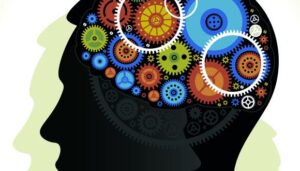
The activities in the parts of the brain which are to control attention are highly related to ADHD. Dopamine is the chemical that moves the signals from one nerve to another. When there is a deficiency in Dopamine, it triggers emotional responses.
Sometimes the environmental and social factors play a major role in the development of ADHD. Uneducated parents, bullying, maltreatment, and negative parenting are the causes of ADHD. The adversity of ADHD can depend on the factor. It can also lead to other disorders like anxiety, depression etc.
Maternal Substance Abuse
When there is the constant use of drugs, alcohol, or cigarettes by the mother during the pregnancy, it has an adverse effect on the child. One such effect can be ADHD in children.
Pregnant women should avoid the consumption of Alcohol, drugs and smoking.
How Doctor will Diagnose ADHD?

When you observe the above symptoms, you must visit a doctor immediately so that he or she can diagnose whether you have it or not.
There are no tests that can diagnose ADHD especially if it is in children. Doctors can only diagnose it by observing the symptoms and can discuss it with the parents or any guardian who has observed the child’s behaviour.
Some guidelines are used by the doctors so he or she can diagnose it on the basis of the number of symptoms the person had and how much the duration of these signs is. There can be some tests that can be used to check the psychological and neurological status of the child. The General Physician will refer you to consult a Psychiatrist, who will refer you to the tests. The Doctor you are consulting must be having some experience in dealing with ADHD.
The general tests conducted are:
- Test of Intelligence, Aptitude, Personality traits or skills of parents and the child.
- To measure the Theta and beta brain waves, a Neuropsychiatric EEG-Based Assessment Aid (NEBA) scan is done.
- A physical examination
- Medical of both the child and the family.
What is Treatment for ADHD?
There are different techniques to treat it. According to Doctors and specialists, the most effective way to treat children with ADHD is a combination of different treatment methods that work together. Two main methods to treat are Medications and therapy. However, to prevent and manage the symptoms there are some Natural Remedies as well.
Medications
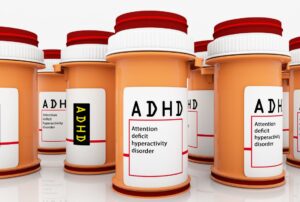
This is the most commonly recommended method to treat ADHD. The two main types of medication used in ADHD are Stimulants and non-stimulants. These medications treat ADHD by increasing the brain chemicals dopamine and norepinephrine.
Some of these medicines are:
- Methylphenidate,
- Dexmethylphenidate
- Dextroamphetamine, etc.
Some Doctors can even recommend antidepressants like Bupropion, Venlafaxine etc.
Therapy
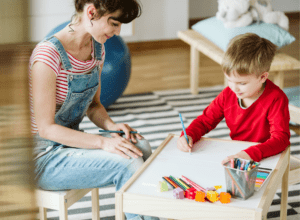
The therapies that are used to treat it mostly focus on changing the behaviour of the child.
Some of these therapies are:
- Psychotherapy: This can help you to learn how to handle their emotions like anger, frustration in a more easy way. This can also help someone to increase their self-confidence which may be lack due to the diagnosis of ADHD in them.
- Social skills training: This can teach them various social skills so that they can easily interact with the public. This can help them to stay in a social circle easily.
- Behaviour modification: This teaches you how to behave in the public. In this way, certain rules are set up by you so that you can behave according to what you want. Give them rewards for their goodness, this will encourage them.
- Special Education: This helps them to learn a lot. When you help them to learn with structures and routines, it will help them to live with this.
Natural Remedies
These are some of the healthy and natural remedies that can be used to cure ADHD. Some of these are:

- Eat healthy diet
- Use limited electronic devices
- Do exercises regularly
- Take adequate rest
- Do work according to routines and schedules
- Behave in a good manner
- Focus on your work.
Conclusion
If your child is having any symptoms of ADHD, you should start caring for it before it’s too late. If you are having any problem sleeping, concentrating at work, etc. Consult a doctor first. Do not eat anything without consultation from the specialist as it can negatively affect your health. Take necessary precautions beforehand to prevent these conditions.
For more information, please contact MantraCare. ADHD is a neurodevelopmental disorder characterized by difficulty in paying attention, hyperactivity, and impulsivity. If you have any queries regarding Online ADHD Counseling experienced therapists at MantraCare can help: Book a trial ADHD therapy session
